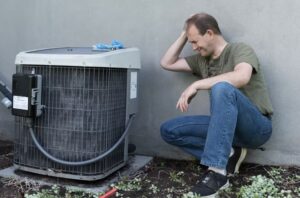 LANDLORDS BEWARE! Oklahoma has a new law going into effect on November 1, 2022, that makes a major change to the ORLTA. The change is aimed at improving living conditions for renters by allowing renters to make extensive repairs to their rent houses and apartments if there are defects affecting their health.
LANDLORDS BEWARE! Oklahoma has a new law going into effect on November 1, 2022, that makes a major change to the ORLTA. The change is aimed at improving living conditions for renters by allowing renters to make extensive repairs to their rent houses and apartments if there are defects affecting their health.
The new law gives renters a fast turnaround time to force landlords to make essential repairs to the leased premises that are the responsibility of the landlords in the first instance under ORLTA 41 O.S. §§ 117-118.
Starting November 1, a tenant may notify the landlord in writing about a needed repair that “materially affects health” that must be made at the landlord’s expense. And after 14 days, or less “in the case of an emergency,” if the landlord has not made the repairs on his own, the tenant may then complete the work and, after submitting to the landlord an itemized statement, deduct from his rent the “actual and reasonable cost” or the “fair and reasonable value of the work” up to the amount of a full month’s rent.
Since the late 70′s, tenants have only been able to deduct $100 worth of repairs from their rent payment. Based on inflation, the $100 cap would equal $478 today. In lieu of a new fixed limit that might not keep up with inflation, the legislature decided to set the cap at up to one month’s rent. The legislature was heavily influenced in its decision by language proposed by the nonprofit advocate for tenant’s rights, Tulsa Housing Solutions, as well as by the Tulsa Apartment Association, Apartment Association of Central Oklahoma, and the Oklahoma Association of Realtors.
For landlords that, for whatever reason do not make timely repairs, a tenant, with for example $1,500 rent, can make repairs or replacements of up to $1,500.00 and deduct the same from the next month’s rent. Tenants will use self-help to cause costly repairs to be made that landlords did not have the time or the funds to address. Further, while the repairs notices must be in writing, there is no requirement that the notices be sent via certified or registered mail. A hand delivered note, an email, or a message sent via an online property management software service used by the landlord will likely be deemed to be sufficient written notice.
What is not addressed in the new law is how often a tenant can use this remedy. The result is that tenants are allowed to send notices monthly, make repairs monthly, and make rent deductions monthly. Another issue not addressed is how to resolve disputes over:
- whether the defect materially affected health,
- whether a less than 14-day repair was in the case of an emergency,
- whether all or a part of the work was necessary, and
- whether the cost of the work was reasonable.
With respect to issue of the reasonable cost of the work, this new law also allows tenants to do the work themselves and deduct their self-assigned “fair and reasonable value of the work” from their rent. As one tenant has observed: “I think it helps out quite a bit, considering if you have a thousand dollar rent and say they don’t want to fix your furnace and your furnace comes out to $1,500,” the tenant said. “There’s a thousand rent you don’t have to pay, and you can still get your stuff fixed.”
Clearly, landlords and property managers will have to be diligent in monitoring, and then quickly investigating, assessing, and responding to repairs demands. Failure to do so may result in tenants eagerly making repairs themselves, assigning to themselves a generous hourly rate for their time, and deducting the value of their time and materials from their rent. Landlords who may want to take issue with their tenants’ accountings should consider how sympathetic the Small Claims Court will be to their complaints of unpaid rents in circumstances where the landlords were arguably in default of their duties under the ORLTA to maintain the leased premises. Once it is established that some sort of written notice was given, it is likely that the Small Claims Court will assign to landlords the burden of proof with respect to whether the defect did not materially affect health, and to whether the scope and cost of the work was unreasonable.
The new law is codified in the ORLTA at 41 O.S. § 121.B (OSCN 2022).
